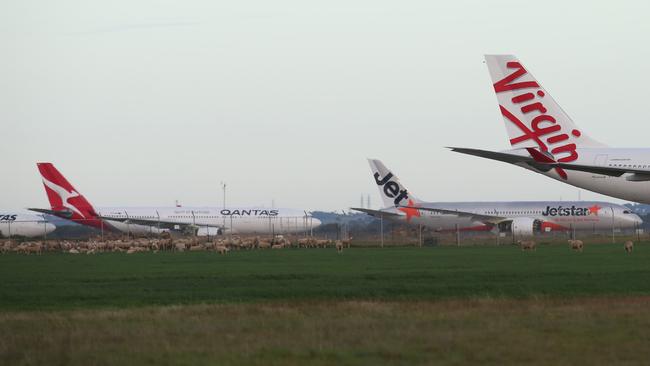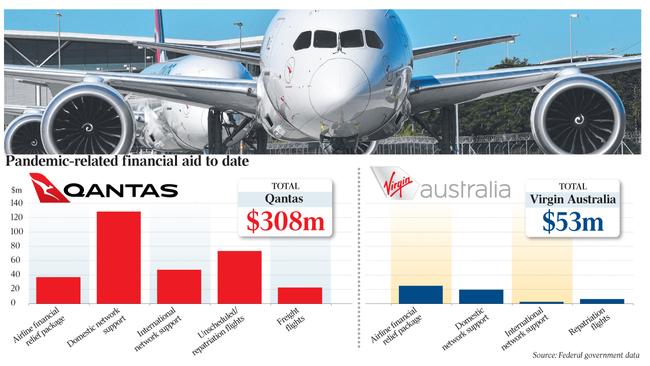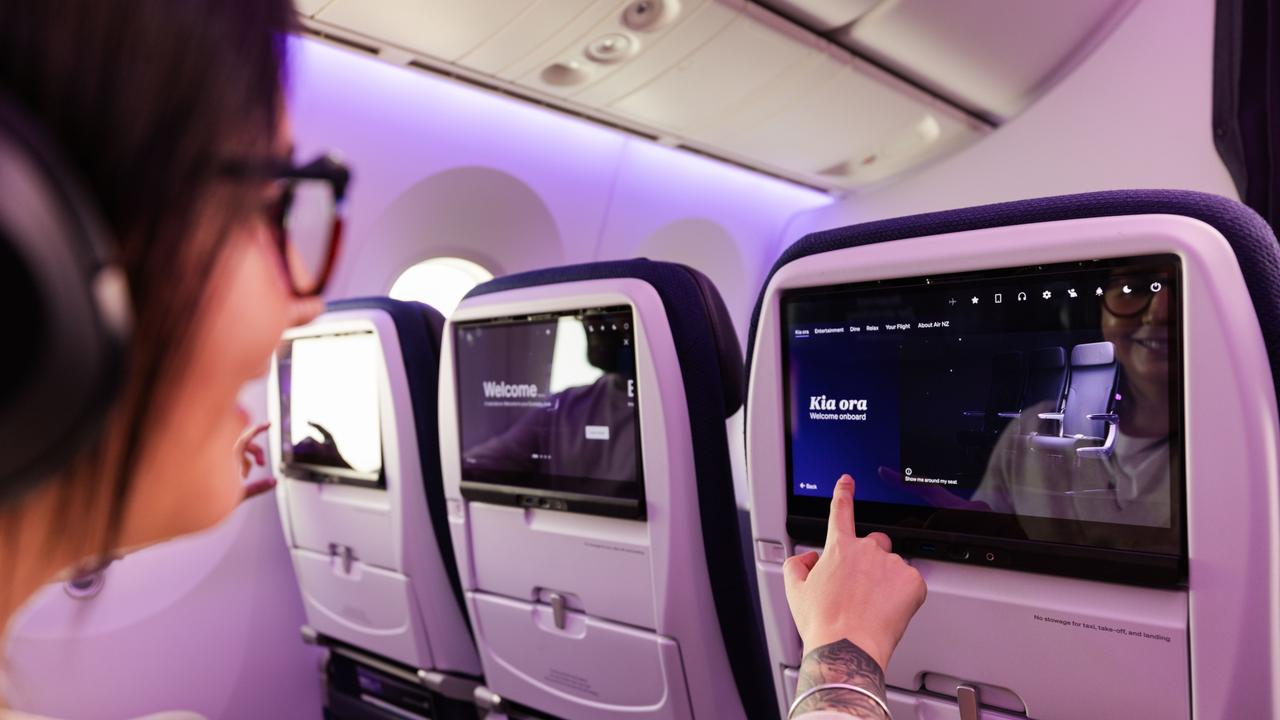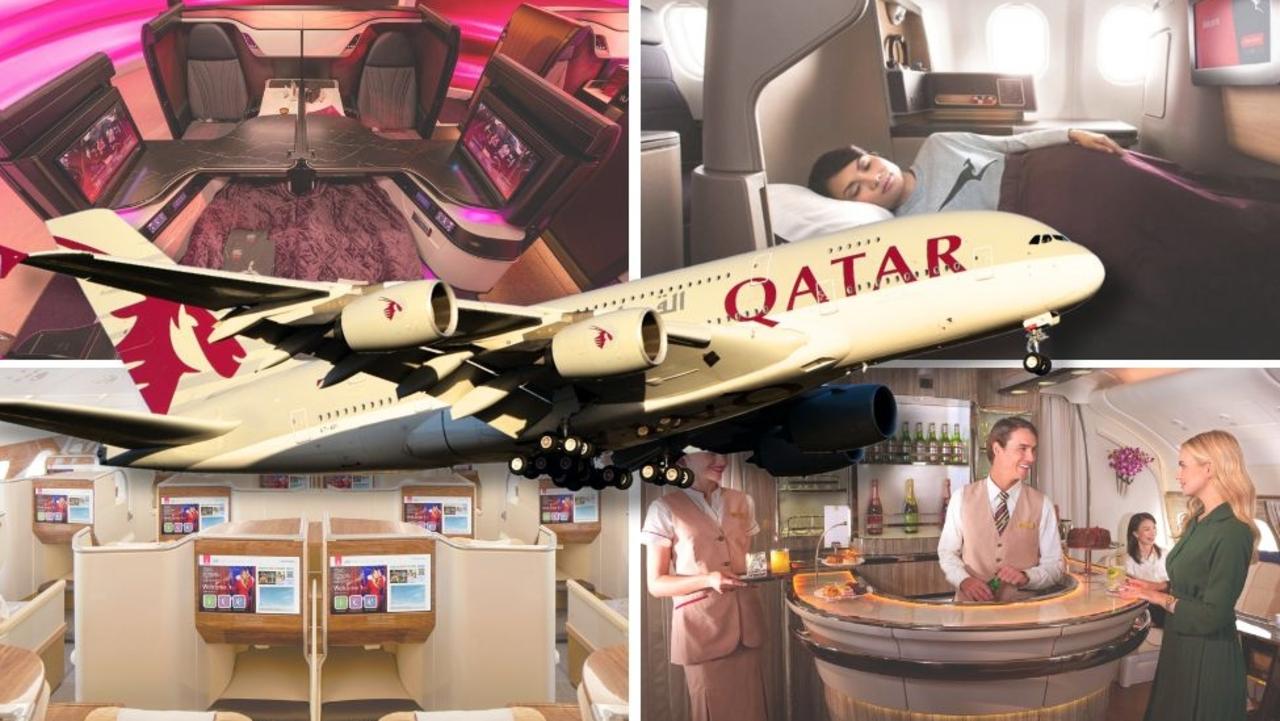Qantas gets lion’s share of aid as Virgin flounders
Qantas is on track to receive almost six times the financial assistance granted to Virgin Australia by the federal government.

Qantas is on track to receive almost six times the financial assistance granted to Virgin Australia by the federal government in response to the COVID-19 travel restrictions.
Publicly available data on government tender and grants sites lists nine separate payments to Qantas and four to Virgin Australia for international repatriation flights, domestic services, freight-only flights and relief from fees paid to government agencies.
Promised payments to the larger Qantas totalled $308m to date, and those allocated to Virgin Australia totalled $53m, not including the JobKeeper allowance being paid to thousands of stood-down workers.
Regional Express, which in March warned that it would collapse within six months without government funding, has so far been promised $80.8m.
It is believed the allocation of funds from $1.2bn set aside by the government for the aviation industry has created some misgivings within embattled Virgin Australia.
Before going into voluntary administration on April 21 with debts of $6.8bn, Virgin Australia repeatedly approached the government for financial help, but was refused.
“The government might say it’s not their job to pick winners and losers but that’s hard to believe, looking at these figures,” an airline source said.

In the case of funding for a minimal domestic network, which is set to be extended until September 30, Qantas was allocated $128m and Virgin $19.6m.
Qantas was operating 164 weekly services, while Virgin was flying 64.
Qantas also received $47.2m to help it fly a much reduced international network, and a further payment of $67.6m was granted for repatriation flights, including those from Wuhan and Tokyo.
Additional grants of $920,680, $1m and $2.7m were provided for other unscheduled repatriation flights from Johannesburg, Buenos Aires, Lima, New Delhi, Mumbai and Chennai.
Virgin Australia was granted a total of $9m for international services to Hong Kong and Los Angeles, the last of which was due to land in Brisbane on Tuesday.
A Qantas spokesman said the government’s support for the aviation industry by underwriting some essential flying was greatly appreciated.
“The government’s support of the aviation sector has been extremely welcome and importantly is proportional to the size of each airline and their business,” the spokesman said.
As the national carrier, Qantas had done the lion’s share of repatriation flights, bringing thousands of people home from overseas, he said.
“We’ve been proud to do it and so have our people,” he said.
He denied Qantas had lined its own pockets by charging $2300 a seat for flights from New Delhi to Australia, in response to huge demand.
“We’re operating these flights on a cost recovery basis, with the ticket revenue passed on to government to offset the cost to the taxpayer,” the spokesman said.
All airline operators in Australia have been hit hard by the COVID-19 pandemic, resulting in border closures and major travel restrictions that reduced demand for air travel to almost nothing.
Qantas and Jetstar have stood down 25,000 of their 30,000-strong workforce, and sourced more than $1.5bn in loans, to tide the group through the pandemic.
More than 8000 Virgin Australia employees have been sidelined and 1000 made redundant as administrator Deloitte seeks to finalise a sale to either Bain or Cyrus Capital by the end of the month.
From Tuesday, international flights operated by Qantas and Virgin Australia will be halted indefinitely following the last government-subsidised services.
Although Qantas could operate ad hoc services as required, no overseas flights are currently planned.




To join the conversation, please log in. Don't have an account? Register
Join the conversation, you are commenting as Logout